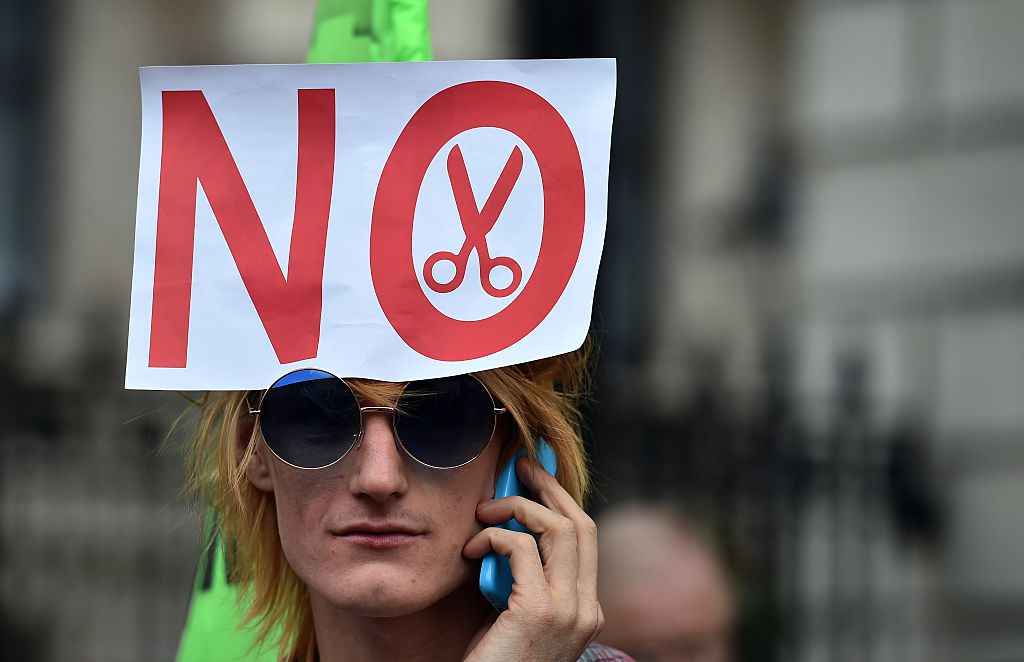Schools will finally get a bit more money. Nurses and policemen may at last get a proper pay rise. Local councils can stop scratching around to see if there are any services left they can still cut and the Chancellor may even be able to lighten up budget day with a minor tax cut or two. As Theresa May used her speech at the Conservative party conference to announce the ‘end of austerity’, departments all over Whitehall were no doubt busy thinking of new ways they could spend the money that is about to be released.
The politics of that decision might well be fine. A decade after the financial crash, and the huge deficits that came with it, the process of relentlessly cutting public spending has become exhausting. The economics are okay as well. The UK has bought public expenditure under control, and it poses no immediate threat to stability. But the strategy is terrible. In truth, the Conservative Party should always be in favour of ‘austerity’. Why? Because if it isn’t, then public spending will keep growing uncontrollably until it eventually suffocates the rest of the economy.
Economists will probably argue for years whether David Cameron and George Osborne, his chancellor, came up with the right strategy to deal with the budget mess they inherited in 2010. Achieving the precise mix of spending cuts to stabilise the budget without hammering economic growth is, despite the spurious precision of most economic models, more of an art than a science. In the end, the UK got borrowing back under control, while the economy grew, and a fresh recession was avoided. Sure, it could probably have been better. But it could also have been a lot worse – just take a look at Greece, Italy, or Japan for evidence of that.
The emergency is now over. The deficit has shrunk to less than two per cent of GDP while overall debt is safely under 100 per cent of GDP. Tax revenues are growing, and employment, which is the one thing that really drives revenues, is climbing to record highs. The one thing we have learned from the last decade is that prosperous, developed economies can carry far bigger loads of debt than was thought possible. There may be some point at which they collapse under the weight of government borrowing, but is a long way from where the UK is now. If we want to borrow a couple of percentage points of GDP every year, that’s fine.
The trouble is, austerity is a great way of keeping a lid on public spending. ‘Government does not tax to get the money it needs,’ Ronald Reagan once argued, ‘government always finds a need for the money it gets.’ He understood that the state would expand relentlessly if you allowed it to. New services would be created, benefits would expand, agencies would be established, and entitlements locked in. Lots of politicians will come up with ways of spending money, but no one will argue for cutting it.
Austerity may no longer be an economic necessity, but it is still the only way to keep the size of the government under control. If the Conservative party relaxes on that, we will find state spending climbs up to 40 per cent or 50 per cent or more of the economy. France’s spending has climbed to an astonishing 56 per cent of GDP, a level at which it debatable whether it is still a free market economy. Pressing on with austerity is the only way to avoid that – which is why Theresa May has fatally mis-calculated in ending it.






Comments